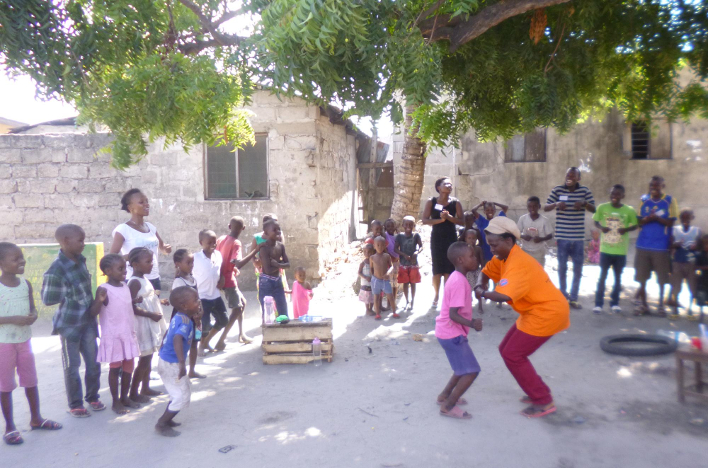Learning from Success in East Africa

Dar-es-Salaam, Tanzania — Following the seminar for young people held in March to share success stories (see article Making Connections: Young People Know How to Reach Out), several participants have continued to write about what they learned from each other.
Orna, a lecturer at the University of Jerusalem, who has studied the Learning from Success method, came to Tanzania to help the participants in this seminar to look at their action and commitment from the angle of success. She said at the outset: “Everyone has some success in life. We know that you work together with others, but we will ask each of you: ‘What did you personally do?’ You may say for example: ‘I invited the children to take part in our activity’. I will ask you: ‘How did you invite them?’ With our questions we want to get knowledge out of each one of you — the knowledge that comes from your experience.”
Romy is a member of ATD Fourth World’s Volunteer Corps who is part of its international Knowledge Action Commitment Team. Looking back at the seminar, she points out that it was very concrete: “All throughout the week, we discovered how each person is trying ‘to be friends with the friendless’ through sharing time, skills, creativity, and affection. The strict assignment by Orna to ask that we speak only about things that can be visualised helped us see with our mind’s eye how Grace sings songs with the children and creates new songs from children’s messages. We could “see” how Christian prepares and facilitates a weekly radio program with Tapori children which is listened to by children, parents and teachers, and sometimes politicians. We could “see” Shafi leading his friends to stop some criminals from stealing and beating up women in the neighbourhood. We “watched” Ally guide a child’s hesitant hand to draw. We followed Pazi carrying water to the house of an old coup, how could they go forward without us? […] I saw how the young people [in this seminar] are ready to be with extremely poor people over many months and years to develop trust and go forward step by step with them.”
A participant from the DR Congo named Christian reflects, “The testimony of all young people present at the meeting made me dream. And I am confident that all young people of Africa will meet one day to [respond to] the call of Fr. Joseph [Wresinski]. Our actions catch attention of many young people. We wish that still others will follow suit. That’s why we opened a group on Whatsapp. It allows us to keep the link with each other and to continue the exchange. We reflect on the possibility also of a Facebook group. So we will continue to communicate about our actions.”
Oscar, one of the Tanzanian young people participating in the seminar, says, “When I returned home from the seminar, The difficulty was the neighbours; they were sure I had come home with something in my pocket. They said you must have gotten something, [at least enough] to buy a soda. When I told them ‘no’, they said, ‘You wasted your time if you came back with empty hands’. In the community, when you are the first to help people in need, other people ask, ‘Are you a relative? Why are you the first? Why are you touched more than others?’ Some people try to discourage you. But I am not discouraged. I am a pillar. I use my strength, my courage, my mind. […] From this seminar I have found a conviction that it is very important to be a friend to the friendless. It is something serious; this conviction for me goes very deep.”
Another Tanzanian participant, Pazi, reflects, “When you make somebody recognise something it is development. The suffering of very poor people can be reduced when you join with them. In my community I help fetch water for an old couple, it is not only to help them but also for them to see that society cares for them.”
Patrick, a participant from Kenya, says, “Being a friend to the friendless is not an individual responsibility but an obligation. As a youth, the most enduring value that you will ever be able to give the community is your commitment. Try as much as you can to be friendly to the marginalised; they don’t need your money but acceptance as human beings.”

